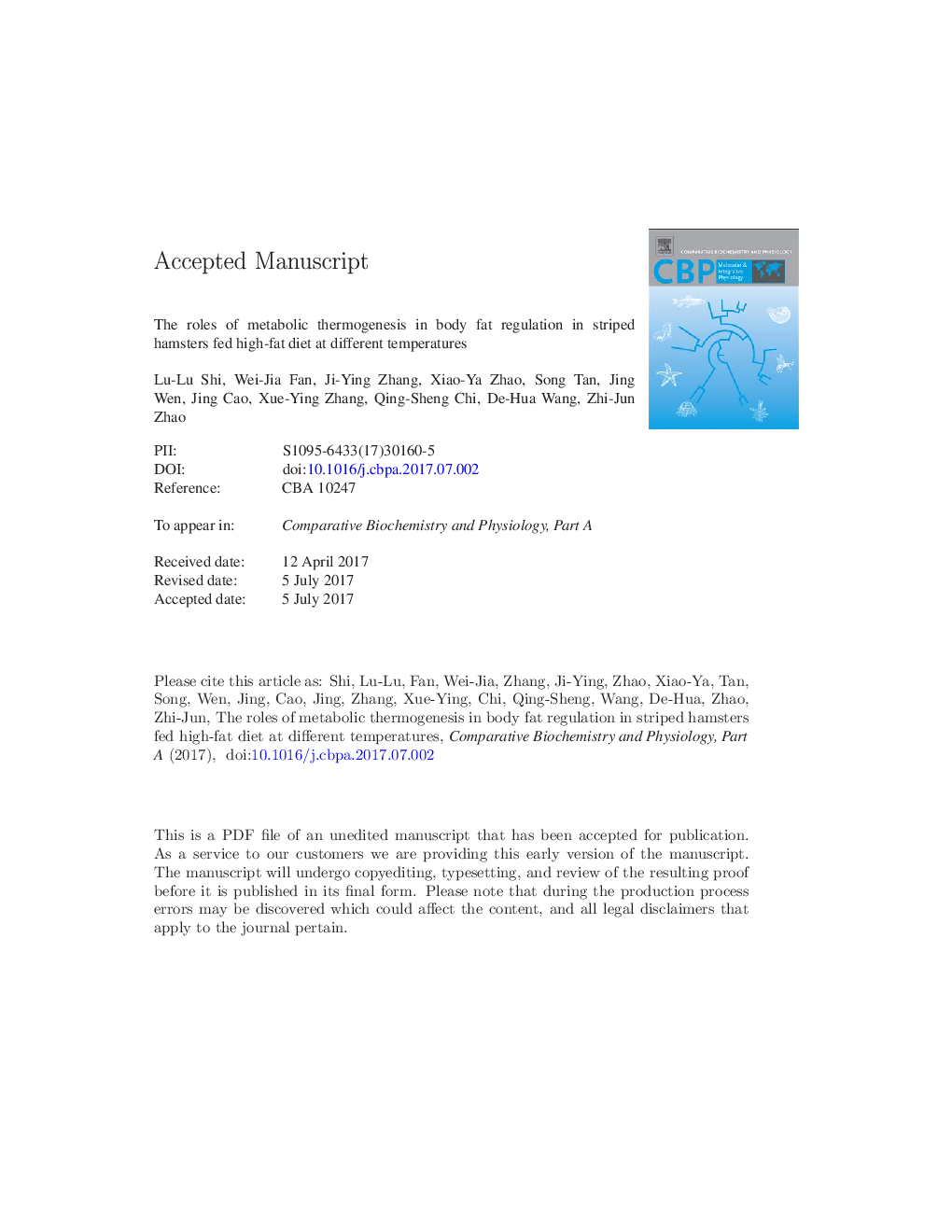| Article ID | Journal | Published Year | Pages | File Type |
|---|---|---|---|---|
| 5510253 | Comparative Biochemistry and Physiology Part A: Molecular & Integrative Physiology | 2017 | 37 Pages |
Abstract
The metabolic thermogenesis plays important roles in thermoregulation, and it may be also involved in body fat regulation. The thermogenesis of brown adipose tissue (BAT) is largely affected by ambient temperature, but it is unclear if the roles in body fat regulation are dependent on the temperature. In the present study, uncoupling protein 1 (ucp1)-based BAT thermogenesis, energy budget and body fat content were examined in the striped hamsters fed high fat diet (HF) at cold (5 °C) and warm (30 °C) temperatures. The effect of 2, 4-dinitrophenol (DNP), a chemical uncoupler, on body fat was also examined. The striped hamsters showed a notable increase in body fat following the HF feeding at 21 °C. The increased body fat was markedly elevated at 30 °C, but was significantly attenuated at 5 °C compared to that at 21 °C. The hamsters significantly increased energy intake at 5 °C, but consumed less food at 30 °C relative to those at 21 °C. Metabolic thermogenesis, indicated by basal metabolic rate, UCP1 expression and/or serum triiodothyronine levels, significantly increased at 5 °C, but decreased at 30 °C compared to that at 21 °C. A significant decrease in body fat content was observed in DNP-treated hamsters relative to the controls. These findings suggest that the roles of metabolic thermogenesis in body fat regulation largely depend on ambient temperature. The cold-induced enhancement of BAT thermogenesis may contribute the decreased body fat, resulting in a lean mass. Instead, the attenuation of BAT thermogenesis at the warm may result in notable obesity.
Related Topics
Life Sciences
Biochemistry, Genetics and Molecular Biology
Biochemistry
Authors
Lu-Lu Shi, Wei-Jia Fan, Ji-Ying Zhang, Xiao-Ya Zhao, Song Tan, Jing Wen, Jing Cao, Xue-Ying Zhang, Qing-Sheng Chi, De-Hua Wang, Zhi-Jun Zhao,
